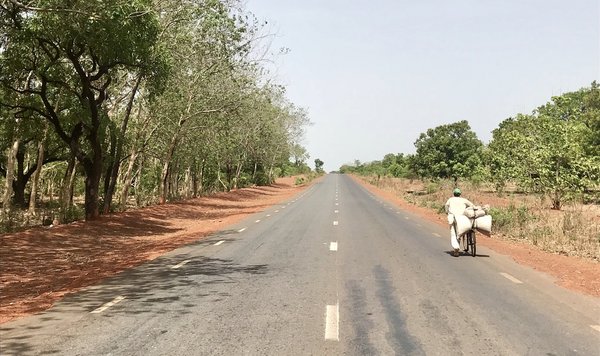- Share this article
- Subscribe to our newsletter
SDC: Cooperating across borders in West Africa
Many borders between West African states were drawn randomly by the colonial powers. They are still perceived as an obstacle by the people living there today. The borders restrict free movements of persons and goods and impede regional integration. This is also having a negative impact on the regions’ economic development.
Therefore, the «Programme de Coopération Transfrontalière Locale» (PCTL), which is supported by Switzerland, is promoting regional, cross-border integration in cooperation with the Economic Community of West African States (UEMOA). To this end, in an initial step, a 165,000 square kilometre region with more than 7.5 million inhabitants that is situated between Mali, Burkina Faso and Côte d’Ivoire was analysed in terms of agriculture, education and training, and healthcare services. The result is that the considerable economic potential of this region, with its capitals Abidjan, Bamako and Ouagadougou, has so far only been made limited use of.
Focusing on improved roads
One important reason is the poor state the roads are in. Small, interregional roads in particular are in often bad repair and are sometimes not negotiable during the rainy season. Food goes bad before it reaches the regional markets. The analysis has also revealed that most regions have a considerable demand for hospitals, schools and sanitation.
In a number of workshops with representatives of communities, towns and regions as well as civil society, six priority, cross-border zones and 18 specified projects were defined. Eight of them concern improvements in central road sections with a total length of 850 kilometres. Furthermore, projects have been selected for better water management in a zone between Mali and Burkina Faso that has considerable agricultural significance. And four cross-border health centres are planned.
What has been achieved so far?
- Cross-border cooperation can only work if the necessary structures and awareness are created at the governance level. Here, the project has already achieved some success:
- The representatives elected at local level are backing the concept of integrated transboundary area schemes / schémas d’aménagement transfrontalier intégrés (SATI) and are ensuring its progress at political level.
- Four territorial authorities (Collectivitées Territoriales) are strongly campaigning for the development process and are willing to play a leading role in the decentralisation process.
- Cross-border associations (associations faitières) have been founded and officially recognised.
- Via the PCTL, dialogue has been initiated between local actors and regional decision-makers. For example, the mayors of several small communities have taken part in strategic decision-making (e. g. awarding public contracts, presenting SATI, etc.)
- At state level, bilateral cross-border cooperation agreements have been signed, for example between Mali and Burkina Faso in 2016. The three countries involved established the special economic zone (Zone Economique Spéciale) SIKABO in 2018.
All in all, over the coming years, around 79 million Swiss francs - CHF - (45,670 million FCFA) is to be invested in the PCTL. Three projects are being provided directly with 5.5 million CHF by Switzerland. Since 2016, the UEMOA has been financing the local cross-border projects via its Regional Aid Fund FAIR (Fonds d’aide à l’intégration régionale) with a total of CHF 800,000.
(SDC/sri)





Add a comment
Be the First to Comment